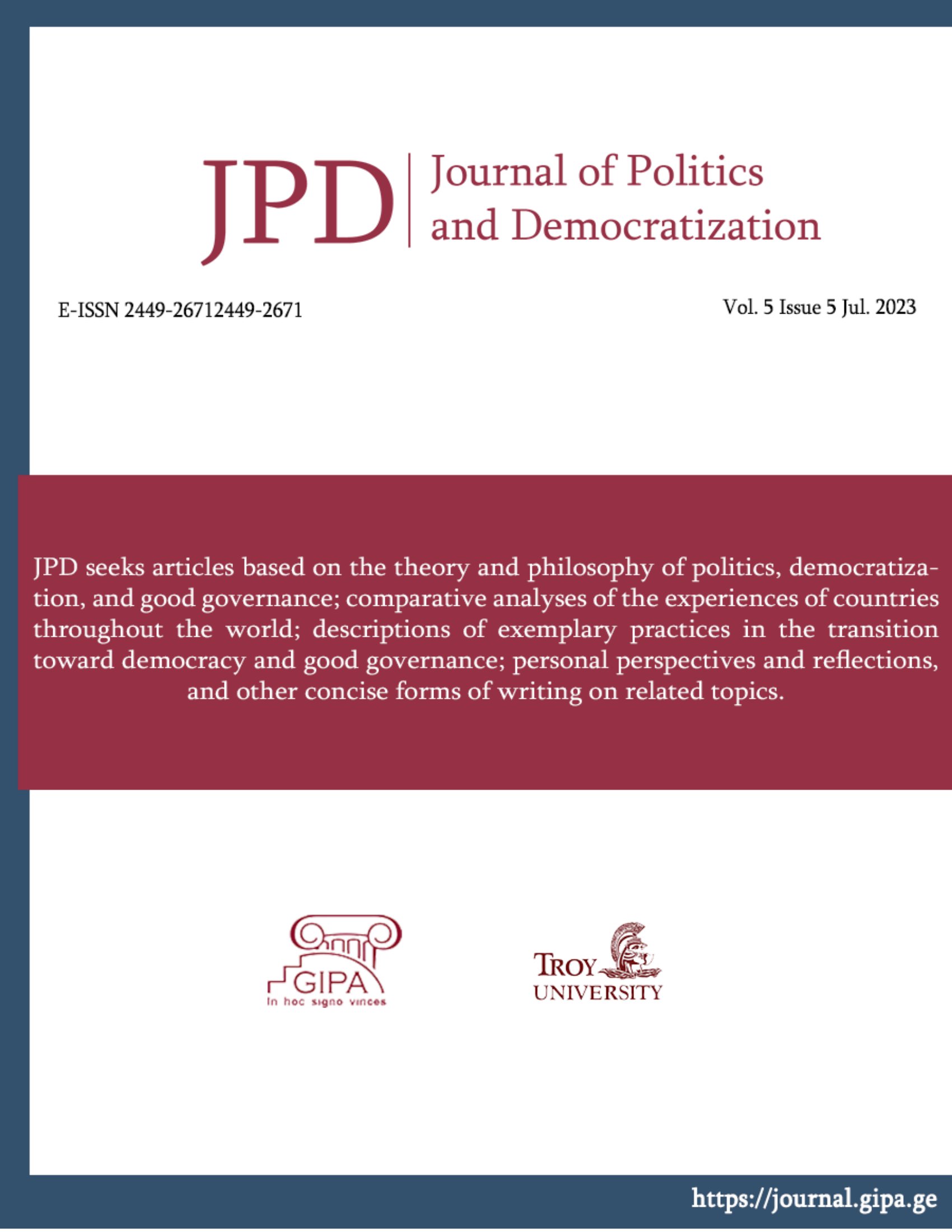An Exposè on Corruption in Political Parties' Financing and Electoral Credibility in Nigeria
Main Article Content
ანოტაცია
Political party financing and spending during elections in North-Central Nigeria and Nigeria as a whole has become worrisome in that scholars across the globe have been divided in their quest to provide answers to the obvious question of whether or not it has an impact on the credibility of the overall electoral process viz-à-vis the behaviours of the electorate. Hence, the study examined political party financing and voting behaviour in north-central Nigeria, with particular focus on the level of financing in the region, the underlining motivations for such financing, and an insight into the benefits or otherwise of political party financing on
governance and development in the region. In achieving the research objectives, quantitative and qualitative methods were utilised. The data obtained were analysed descriptively. The investment theory of politics and social exchange theory were the theoretical frameworks adopted. Findings reveal that political party financing does impact voting behaviour in the 2015-2023 general elections. It further revealed that excessive political party financing affects the performances of eventual winners after elections, and lastly, that political party financing does not benefit the region in terms of governance and development. The study therefore concludes, among other things, that electoral financing, especially if unregulated, is capable of destroying governance and development in the region. Thus, the study recommends that the federal government, without undermining the existence of INEC, the nation’s electoral body, establish an independent and distinct body whose sole function is to oversee and regulate the financing of the electoral process.
